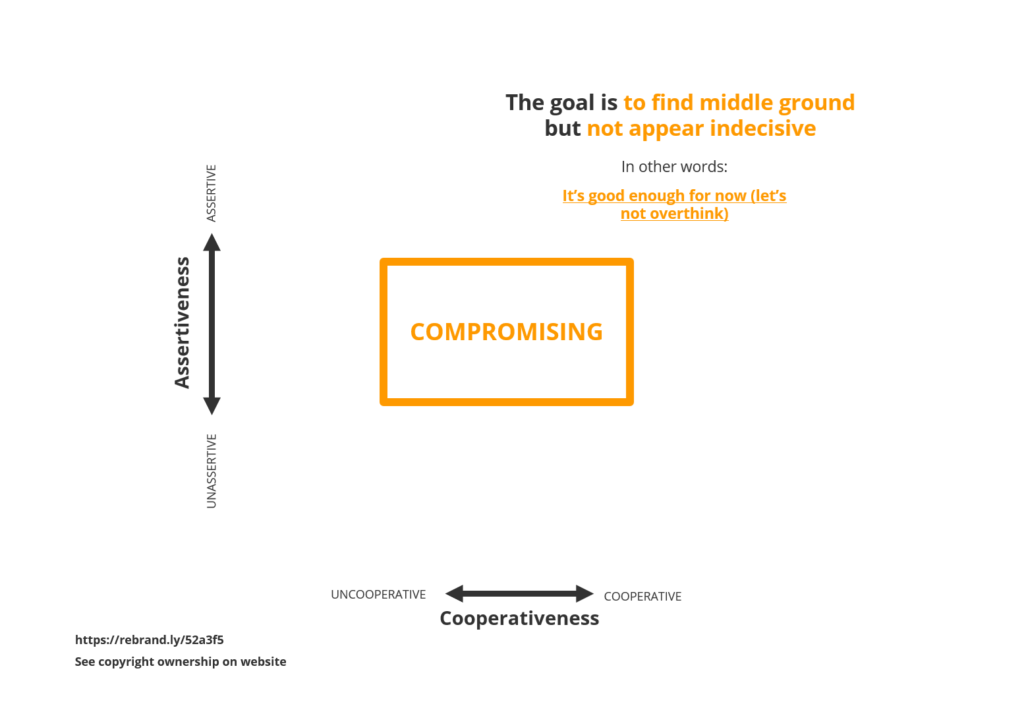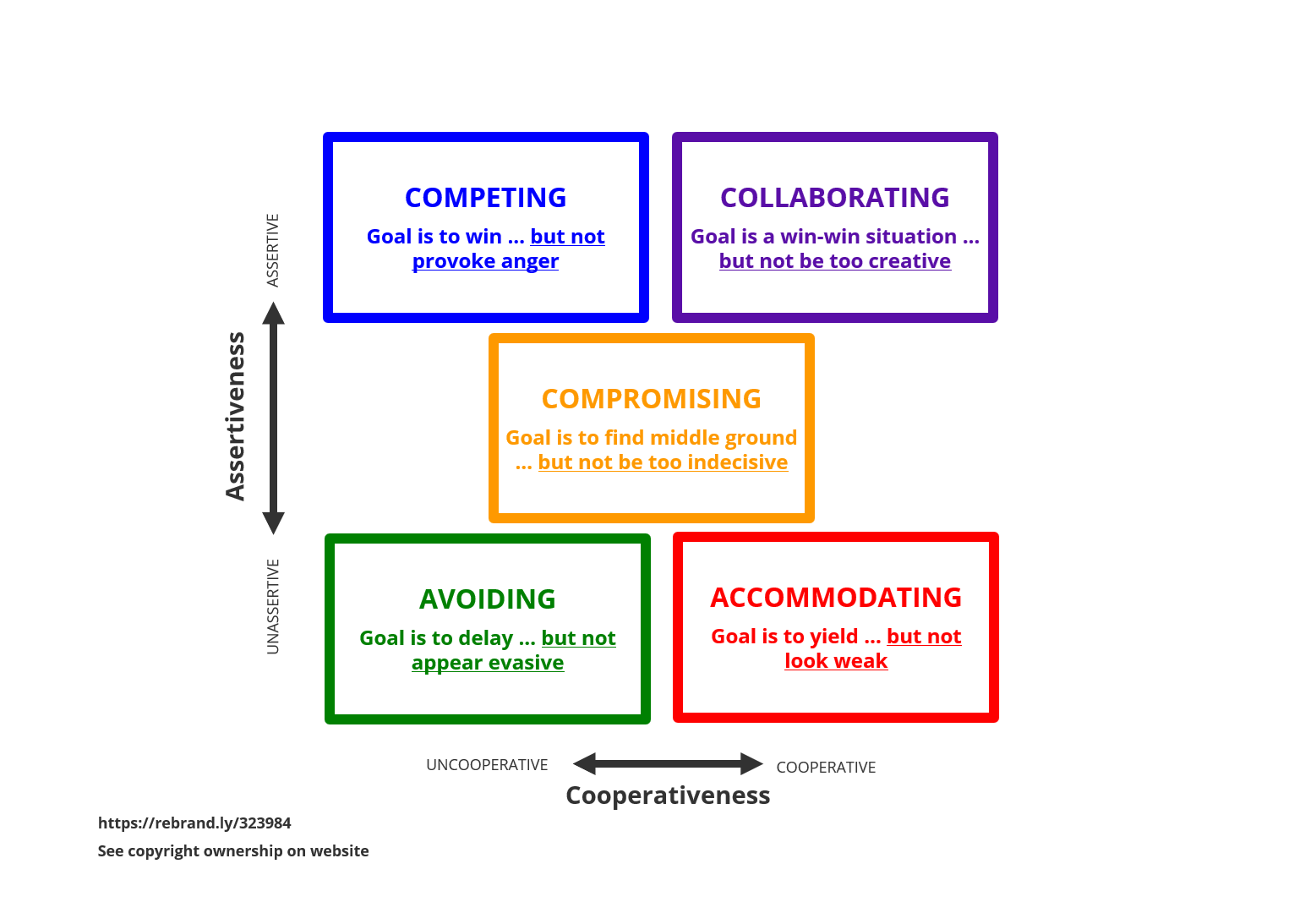This article on Compromising is one in a series of five about managing conflict and negotiation using the Thomas-Kilmann Conflict Mode Instrument.
The introduction to the five-part series begins here. Links to the other four specific areas is at the bottom of this post.
The Goal is to Find Common Ground
This mode of conflict describes a person who is both moderately assertive and cooperative (they somewhat satisfy their own and the other person’s concerns). As it lies midway between both opposing diagonals, the goal of this mode is to find the middle ground, but to not appear too indecisive so you give up/give in prematurely.
This mode is an extremely common choice for a variety of reasons as many types of conflict are not …
- Urgent, vital nor important. It just needs to be dealt with and move on.
- Either/or. Both sides can give up something, and that public acknowledgment of working together quickly and smoothly is important to the relationship.
- Worth significant time. Sometimes it’s OK to find a solution that’s good enough. Not every conflict is a forest fire.
- Complex. The most reasonable answer is obvious or practical.
- Worth multiple meetings. Some conflicts need an adequate amount of time for discussion and agreement, and then we move on.
- A middle-ground solution is the only option when other modes have failed.
As the name suggests, the issue is one or both parties have “compromised” something to gain partial satisfaction. Or, both parties chose to compromise quickly, only to realise shortly after that more thought, time or resources would have been preferable. Also, many people in conflict workshops tend to believe that Compromising is better than Collaborating, and in some ways it is – but only when you have not given up or sacrificed the vital issues important to you.
If you believe Compromising is your best option
Here are some questions to create options which might minimise the negative effects of this mode.
What is your BATNA (Best Alternative To a Negotiated Agreement) as well as your ‘bottom line’?
It’s a mandatory element of negotiation. It is a helpful consideration even for minor conflicts. Think about what you will do if the conflict cannot be reached. What would you do then? Brainstorm as many alternatives in advance of dealing with the conflict face-to-face. The more comfort you have with your BATNA means you often will be less willing to compromise – or have a better understanding of exactly what concessions you’ll give. At the same time, know precisely what elements of the potential solution are not up for negotiation, as well as how flexible you are to everything else.
How can you compromise, but not look indecision or weak?
It’s a common belief the moment you give up something, you think the other party will hold out for more. Or, you’ll worry that you’ve given too much, Or worst of all, it’s a personal reflection on you that you’re weak and gave into the other side. The best solution is to brainstorm all of your concessions in advance. Again, the more you think about the potential options in advance, the more comfortable you’ll be in the conflict discussion.
What standards will either party use to determine if one or all elements of the negotiation are true?
To compromise effectively, both parties need to have a common and mutually agreed-to set of criteria to determine IF they are the best options. As before, brainstorm in advance all of the possible criteria that might be used for all areas of your BATNA as well as all concessions.
When have you used Compromise in negotiation or conflict, and what happened? Please share your thoughts and stories in the Comments section below.
This article is my own interpretation of TKI. The artwork is my own.
All copyright is owned by Kenneth W. Thomas & Ralph H. Kilmann (1974), “Conflict Mode Instrument,” XICOM Incorporated, 33rd Printing, 1991.
As a reminder, the series about the TKI instrument begins here.
For each individual post, click on the following:




No comment yet, add your voice below!